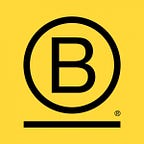This Restaurant Provides Jobs for People With Disabilities
Jack’s Bar & Grill looks like a conventional suburban eatery on a warm Sunday afternoon: servers rushing past with trays of sliders, dog walkers and bicycle riders waiting outside for a table, and people sipping beer and glancing up at ballgames on overhead TVs.
But Jack’s is different. Half of its 130 employees have a disability — including a blind baker named Sam who rolls pie crusts by feel. Many of the cooks, wait staff and espresso-pullers have Down syndrome or other developmental disabilities.
How Jack’s Bar & Grill Provides Meaningful Jobs for People with Disabilities
Creating jobs for people with disabilities was the plan from the beginning. Jack Miller bought Steamers, a tiny coffee shop, in 2007 with his wife, Athan, a social worker, and her boss Scott Parker, who runs Parker Personal Care Homes. In 2010, they opened Jack’s and moved Steamers inside the restaurant. They expanded with the specific purpose of employing more of the people they have served through PPCH. Today, they employ 65 men and women with disabilities.
Colorado law requires the restaurant to hire employees with disabilities through a licensed agency — in this case, PPCH — which protects the workers’ benefits and enables the restaurant to earn vocational rehabilitation credits from the state to offset the cost of training. Everyone at the restaurant, including Jack, Athan and employees without disabilities, are paid through PPCH.
Employees at Jack’s make almost everything from scratch — soup, chicken tenders, salad dressing and baked goods — in a setup that redefines efficiency. “The more ‘inefficient’ we are, the more people we can put to work,” Miller says. So the managers have designed systems that are often slower than a typical restaurant operation but give more people constructive work to do.
New employees start in the prep training kitchen with simple tasks, such as cutting potatoes for french fries or squeezing limes for margarita mix. Per the federal Americans with Disabilities Act, the restaurant pays employees in the training kitchen proportionally to their speed at certain tasks, such as chopping tomatoes, compared with the time that task would take an employee without disabilities. As the employees learn, they can move up to other positions, including host and cook.
The partnership makes growth decisions conservatively, Miller says, because a layoff would be devastating for its workers. Jack’s and Steamers’ employees with disabilities can’t just walk down the street to another meaningful job.
Miller, a former Olympic ski racer, spent many years in real estate, but he says he missed working with deeply committed people. He found that sense of commitment among his employees with developmental disabilities. “For some of these individuals, this is the greatest thing that ever happened to them,” he says. “These people are all in.”
This article originally appeared as one of four companies employing the “unemployable” and creating an inclusive economy in the Pathways department of the Summer 2016 issue of B Magazine. Read about the other companies profiled: Cascade Engineering, Greyston Bakery, and Community Home Care Associates.
